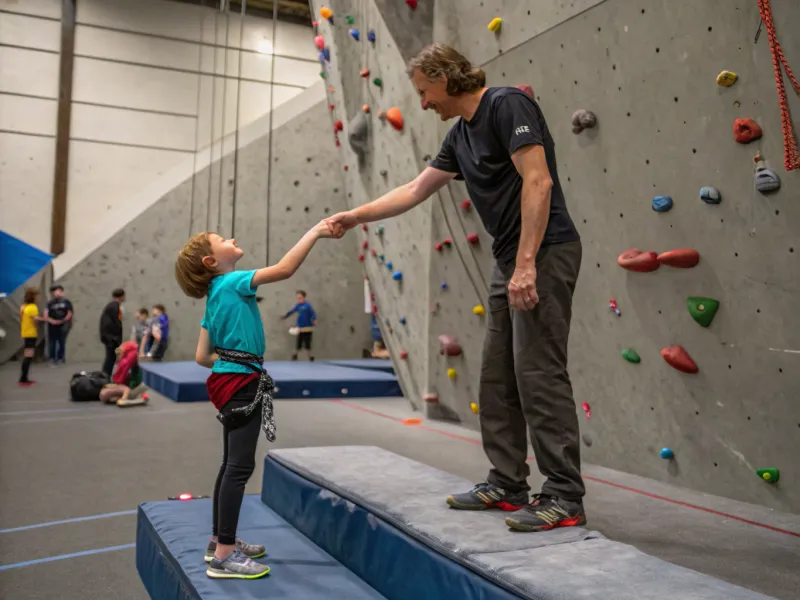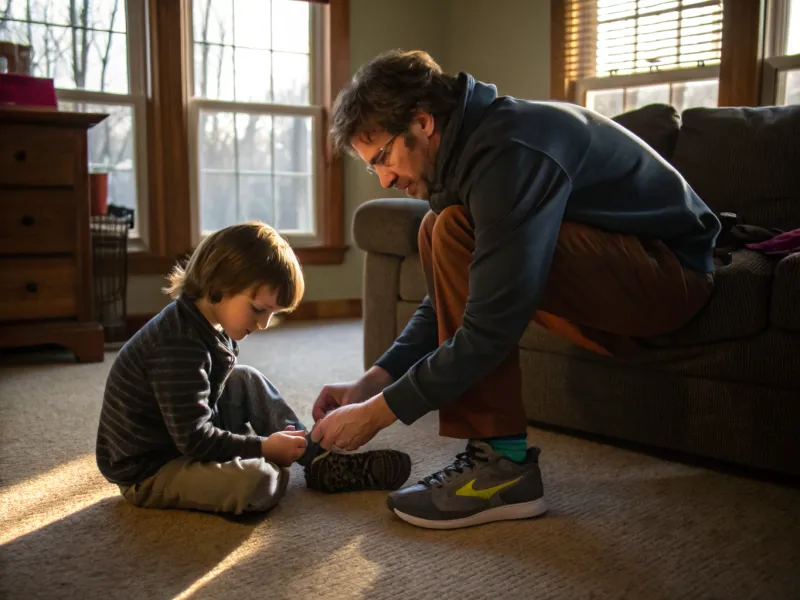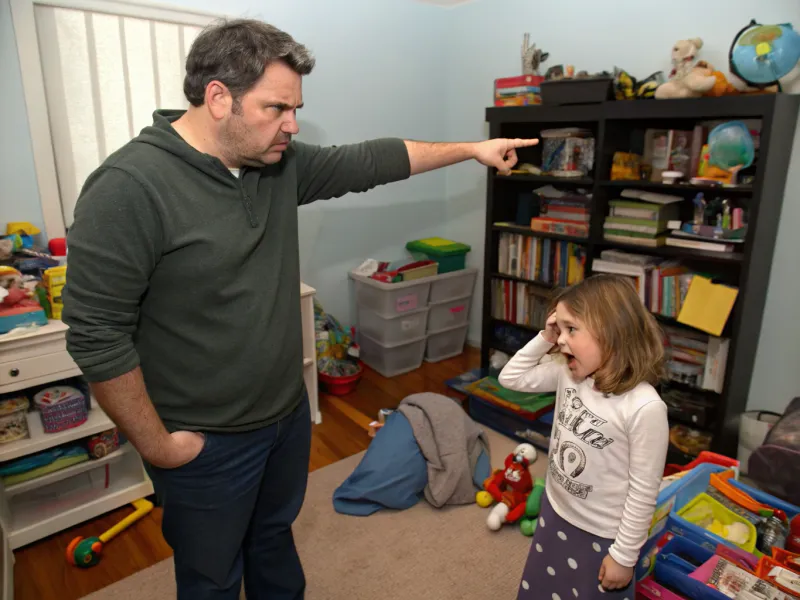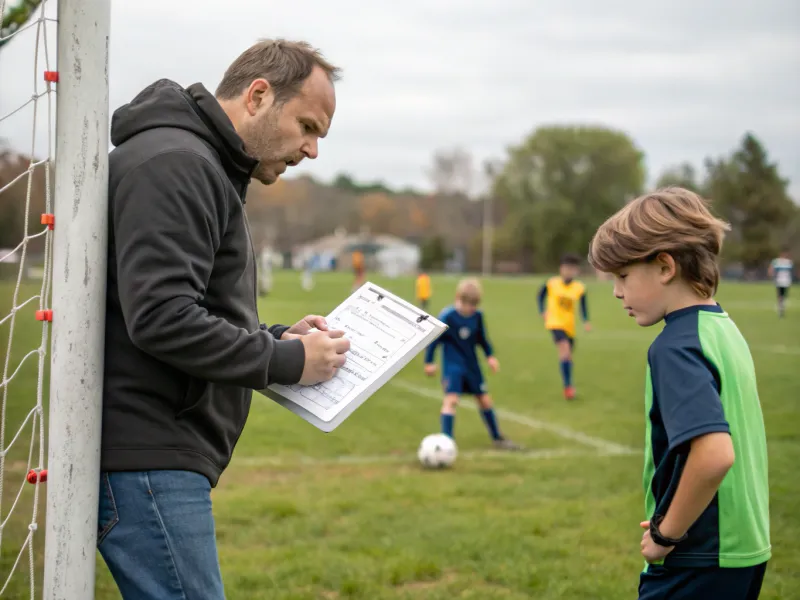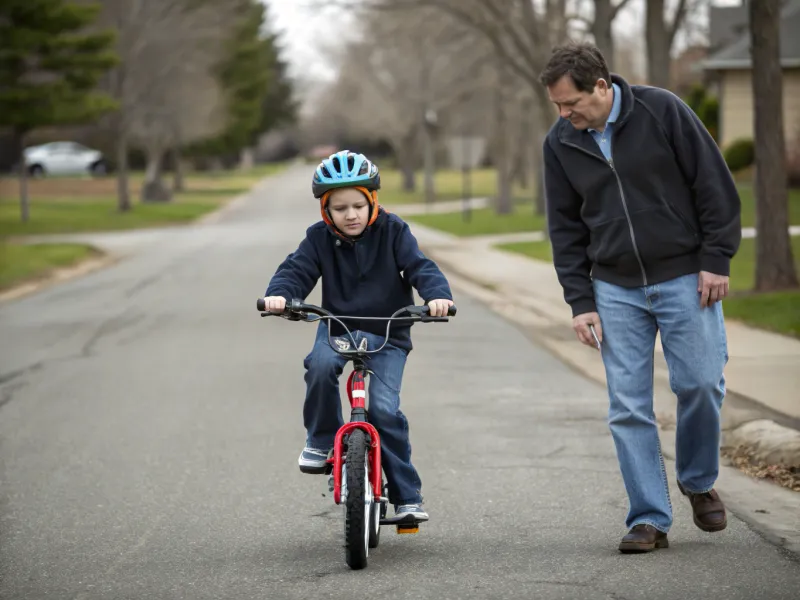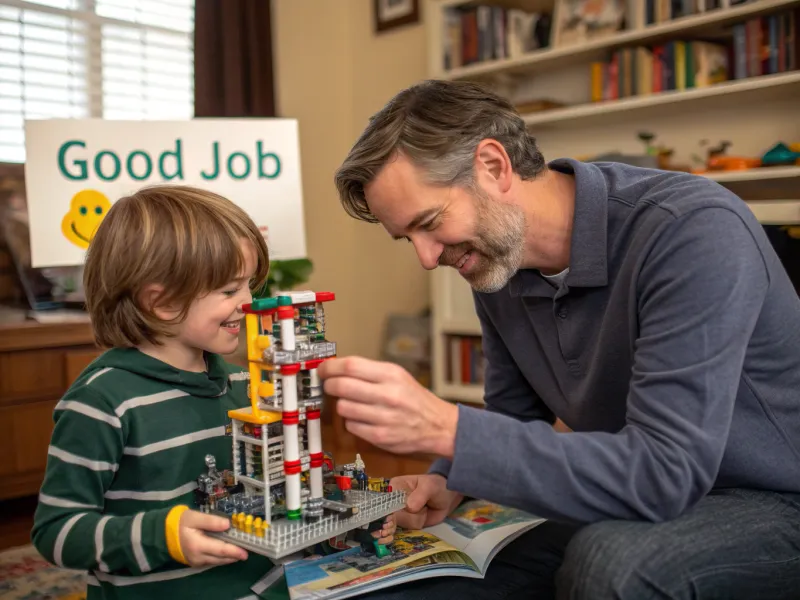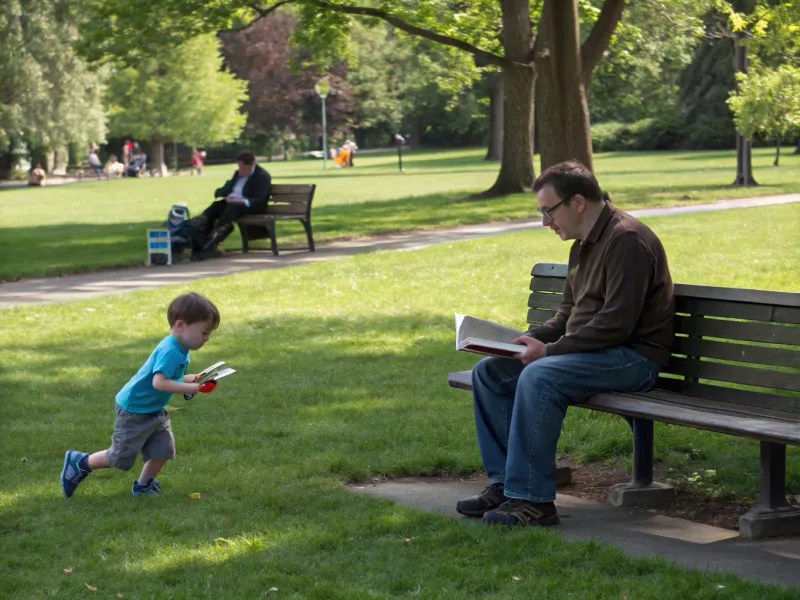Let me tell you right off the bat—raising confident kids is both a journey and an art. We all want our kids to feel like they can conquer the world, right? But sometimes, without realizing, we might be holding them back with some sneaky little habits. Don’t worry; I’ve got your back!
Today, we’re going to uncover 20 habits that we should break to help our kids shine brighter than the stars. Trust me, it’s going to be an adventure full of laughs, revelations, and maybe even a few “aha!” moments.
1. Overprotecting Like Helicopter Parents
Once upon a time, there was a parent who watched their child like a hawk. Sound familiar? Oh, the infamous helicopter parent! Now, don’t get me wrong—I totally get the urge to wrap our kiddos in bubble wrap and shield them from every little bump and bruise.
But here’s the twist: overprotecting them sends a message that the world is a scary place, and they might just start believing they can’t navigate it without us by their side.
Imagine your child wanting to climb the tallest slide at the playground. Your instincts scream, “No way!” But what if you let them try, while you cheer from a distance?
It’s in those wobbly steps and little scrapes that confidence grows. They’ll learn to trust themselves, and maybe, just maybe, believe that they can reach the skies!
So, loosen the reins just a bit. Let them explore, let them fall, and let them rise. They’ll carry those lessons in their heart, knowing you believe in them. And believe me, that confidence? Priceless.
2. Correcting Every Little Mistake
Picture this: Your little one, tongue sticking out in concentration, writes a story full of castles, dragons, and delightfully misspelled words. Enter the red pen—the destroyer of dreams!
Okay, maybe that’s dramatic, but you get the point. Constantly correcting every error can make kids doubt their abilities, feeling like they can never measure up.
Instead, let their imagination take the reins. Celebrate the creativity and effort, even if dragons become “draggins.” Encourage them to tell you more about these magical lands, fueling their excitement and belief in their ideas. You’ll be amazed at how their confidence blossoms when they feel heard and valued.
Remember, it’s about progress, not perfection. Embrace the messy, joyfully imperfect journey of learning. And when they do ask for help, guide gently. They’ll not only learn but also feel empowered to take on challenges with newfound bravery.
Vedi anche: 30 Weird Rules Your Parents Had That Probably Made You A Better Person
3. Discouraging Risk-Taking
Alright, hands up if the idea of your child taking risks gives you a mini heart attack. Totally normal! But here’s the deal: sheltering them from every risk can turn into a confidence-stealer. Let’s be real—life’s an adventure, and adventures come with risks!
Think of it as a mini Indiana Jones expedition. Yes, there might be a few bumps, but those bumps teach resilience. Instead of saying “no,” ask questions like, “What’s your plan if…?” or “How do you think you can handle this?” Teach them to evaluate risks, make decisions, and trust their gut.
And when they do take that leap—whether it’s joining a new club or trying a new sport—shower them with encouragement. They’ll learn that even if they stumble, it’s not the end of the world. It’s just another step in their incredible journey of self-discovery.
Vedi anche: 30 Traits Of Parents Whose Adult Kids Often Go No Contact Once They Grow Up
4. Comparing Them to Others
Ah, the comparison trap—a sneaky little habit we’ve all fallen into. It starts with a simple thought: “Why isn’t my child reading as fast as theirs?” or “Look at their perfect scores!” But here’s a truth bomb: constant comparisons can make your child feel like they’re never good enough.
Kids are like snowflakes—unique, each with their own strengths and timelines. Celebrate their individuality. Focus on their personal bests, and set goals based on their interests and passions, not someone else’s report card.
Instead of comparing, engage in conversations about their achievements, no matter how small. Whether it’s mastering a new Lego set or drawing a stick-figure family, these moments are gold. They’ll feel valued for who they are, not who they “should” be, boosting their confidence in the most beautiful way.
5. Always Jumping In to Save the Day
Super-parent to the rescue! We’ve all been there, swooping in to fix that lopsided shoelace or complete the last bit of homework. But here’s the twist—always saving the day can send a message that they can’t handle things on their own.
Imagine the empowerment they’d feel tackling those challenges themselves. When they struggle, resist the urge to jump in right away. Instead, offer guidance, ask questions, and let them problem-solve. Maybe it’s not about perfect laces but the courage to keep trying.
Cheer them on from the sidelines. Celebrate their small victories and the determination behind them. They’ll start seeing themselves as capable mini superheroes, ready to face the world one tied shoelace at a time. And trust me, that feeling is worth a million perfect bows!
6. Criticizing More Than Praising
We all know that constructive criticism is part of the game. But too much of it, and not enough praise? Well, that can chip away at a child’s confidence faster than you can say “oops!” It’s a delicate balance, but it’s all about finding those magical moments to lift them up.
Try this: for every critique, dish out at least three praises. Notice the way they colored outside the lines with such joyful abandon or the new idea they came up with in their art. It’s these positive reinforcements that fuel their belief in themselves.
Let them know their efforts are seen and appreciated. And when it’s time to guide them, do it with kindness and an encouraging heart. They’ll learn to take feedback in stride, knowing they’re valued and capable, no matter the outcome.
7. Ignoring Their Feelings
In the hustle and bustle of life, it’s easy to gloss over our kids’ feelings. “You’re fine,” we say, dismissing their tears over a broken toy. But here’s the scoop: acknowledging their emotions is key to building their confidence.
When they feel heard, they learn that their feelings matter, and that’s a powerful thing. So next time, put down that phone, and tune in. Ask questions, listen, and empathize. You might discover that it’s not just about the toy but an underlying feeling of frustration or sadness.
Create a safe space for them to express themselves. Offer comfort and understanding, helping them to navigate their emotions. They’ll grow up knowing they can trust their feelings and, more importantly, trust you to be their emotional anchor.
8. Setting Unrealistic Expectations
We all want our kids to reach for the stars, but let’s be real—sometimes those stars feel impossibly far away. Setting the bar too high can turn into a confidence crusher, leaving them feeling like they’ll never measure up.
Shift the focus from perfection to progress. Celebrate the milestones, no matter how small. If they’re struggling with math, praise their effort, not just the outcome. Set goals that are challenging yet achievable, and encourage them every step of the way.
Let them know it’s okay to stumble and that learning is a journey. When they see that you value their perseverance and growth, they’ll start believing in their own potential. And that belief? It’s the launching pad for their dreams.
9. Using Negative Language
Words have power, my friend. And negative language? It can stick to a child’s heart like glue. “You’re so messy,” or “Why can’t you ever…” can weigh them down, chipping away at their self-confidence.
Swap out negativity for words that inspire and uplift. Instead of calling them messy, praise their creativity in building that epic pillow fort. Guide them gently to tidy up, making it a fun and rewarding experience.
Focus on the positives and encourage them with kindness. They’ll start to see themselves through your supportive words, feeling empowered and confident. It’s all about building them up, one positive word at a time.
10. Micromanaging Their Activities
Ah, the allure of the schedule! It promises order and productivity, but too much micromanaging can stifle a child’s sense of independence and confidence.
Letting them choose some activities, or decide how to spend their free time, can be a game changer. It gives them a sense of control and a chance to explore their passions. Whether it’s a sport, music, or just building a Lego empire, stepping back can help them find joy and self-assurance in their choices.
Be their guide, not their boss. Encourage exploration, and watch as they discover new talents and interests. They’ll gain confidence in making decisions and learn to trust their instincts—valuable skills for a bright future.
11. Making Decisions for Them
Remember the joy of picking out your own outfit as a kid? The freedom of choosing between glittery sneakers or superhero capes? Making decisions for them, big or small, can rob them of that joy, and also their confidence.
Start small by letting them choose their clothes or their snack for school. Sure, they might pair stripes with polka dots, but who cares? It’s their choice, and it’s a step towards independence.
Encourage them to voice their opinions and respect their decisions. You’ll see that spark of confidence in their eyes, knowing that their choices matter in their world. It’s an empowering feeling, and one that’ll stick with them as they grow.
12. Not Allowing Them to Fail
Failure is life’s greatest teacher, but protecting kids from it can stunt their growth. It’s tempting to shield them from every fall, but in doing so, we rob them of valuable learning experiences.
Let them play that game of Jenga, even if it means a tumble. When they fail, they learn resilience and the courage to try again. They’ll realize that failure isn’t the end—it’s just a stepping stone to success.
Be there to support and encourage them, helping them to see the lessons in every setback. With each failure, they’ll grow stronger, braver, and more confident in their abilities. And that’s a gift that keeps on giving.
13. Overloading Them with Responsibilities
Responsibilities are important, but too many can feel like a mountain on a child’s shoulders. Balancing chores and schoolwork is crucial, but overloading them can lead to stress and burnout.
Start by assigning age-appropriate tasks that they can manage. Encourage teamwork and praise their efforts. Break down big tasks into smaller, more manageable ones. They’ll feel accomplished and proud of their contributions to the family.
Give them time to relax and play. They need those moments to recharge and be kids. They’ll develop a sense of responsibility, but also know that it’s okay to take a breather. It’s all about balance, my friend.
14. Not Listening to Their Opinions
Kids have voices, and they deserve to be heard. Dismissing their opinions can make them feel invisible and undervalued. It’s crucial to create an environment where they feel safe to express themselves.
During family discussions, invite their input. Ask them what they think, and genuinely listen. Acknowledge their ideas, even if they’re a little out there. They’ll feel validated and important, boosting their self-esteem.
Encourage open dialogues and respect their viewpoints. They’ll learn to communicate confidently and know that their thoughts matter. It’s empowering, and it nurtures a sense of self-worth that will carry them through life.
15. Projecting Your Fears on Them
We all have fears, but projecting them onto our kids can hold them back. Whether it’s a fear of heights or public speaking, it’s important to let them form their own experiences.
Encourage them to try new things, even if it scares you. Stand back and watch as they tackle that bike ride or present their school project. Cheer them on from the sidelines, showing them you believe in their abilities.
They’ll learn to face their own fears with courage, knowing you support them. It’s all about letting go and trusting in their potential. They’ll surprise you with their strength and confidence.
16. Labeling Them with Negative Traits
Labels can stick like glue, especially the negative ones. Calling a child “shy” or “lazy” can shape their identity, affecting their confidence and self-esteem.
Focus on their strengths and highlight the positive traits. Instead of calling them shy, celebrate their thoughtfulness and creativity. Paint a positive picture of who they are and who they can become.
Encourage them to explore new activities and praise their efforts. They’ll start seeing themselves through your positive lens, feeling confident and proud of who they are. It’s all about lifting them up and showing them the amazing person they are.
17. Overpraising Without Specificity
We all love praise, but generic compliments can feel hollow. “Good job” is nice, but specific praise? That’s a confidence booster!
When they build that incredible Lego tower, marvel at the way they engineered the base or the creativity in their design. Highlighting specific aspects shows that you’re truly paying attention and appreciating their efforts.
They’ll feel seen and valued, boosting their self-esteem. It’s all about making them feel proud of their accomplishments and motivated to keep reaching for the stars. And trust me, they’ll soar!
18. Overemphasizing Academic Achievement
Academic success is important, but overemphasizing it can put undue pressure on kids. It’s crucial to celebrate the journey, not just the destination.
Recognize their efforts and hard work, even if the grades aren’t perfect. Encourage a love of learning by praising their curiosity and determination. They’ll learn that it’s okay to make mistakes and that growth comes from trying.
With your support, they’ll develop a healthy relationship with learning, feeling confident in their abilities. They’ll know that they’re more than just a grade, and that’s a lesson that will guide them through life.
19. Neglecting Their Social Skills
Social skills are essential, but sometimes, in our busy lives, they fall by the wayside. Encouraging social interactions can build a child’s confidence and help them navigate the world.
Arrange playdates, join clubs, or participate in group activities. Encourage them to make new friends and try new things. They’ll learn to communicate, share, and care, building friendships that support their confidence.
Be a role model by showing kindness and empathy in your interactions. They’ll mimic your behavior and grow into confident, compassionate individuals. It’s all about nurturing their social side and watching them blossom.
20. Avoiding Difficult Conversations
Difficult conversations are, well, difficult! But avoiding them can leave kids feeling confused and insecure. It’s important to address tough topics with honesty and sensitivity.
Create a safe space where they feel comfortable asking questions about anything, from school troubles to world events. Give them honest, age-appropriate answers, and listen with empathy.
They’ll learn that it’s okay to talk about hard things and that you’re there to support them. It builds trust and confidence, knowing they can come to you with anything. And that’s a relationship that’ll stand the test of time.




